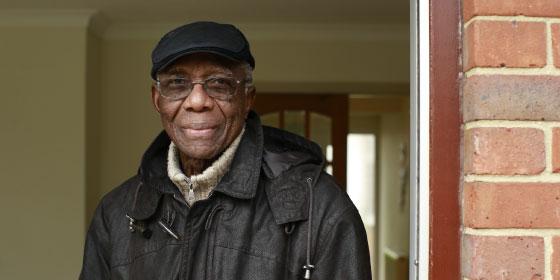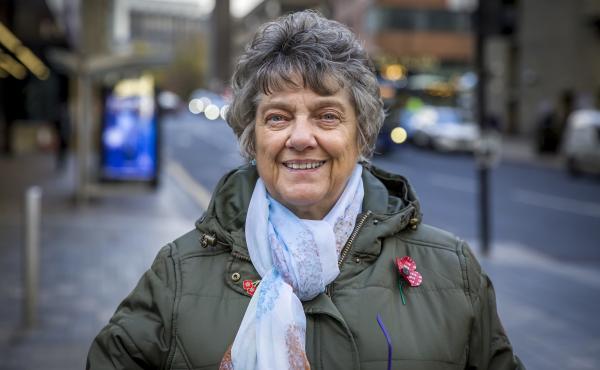 Ageism+
Ageism+
Anti-ageing
We all have our body hang-ups – ‘if only my nose was a little smaller, if only my arms were a bit more toned, if only, if only…’ While body dissatisfaction is sadly common across all ages, attention is more closely focused on younger people’s unhappiness with how they look. Young people of course face a number of pressures. Media reports highlight stories of ‘Snapchat dysmorphia’ - teenagers getting plastic surgery in order to look more like they do in filtered photos. However, little attention is given to older people’s experiences and the pressures that they face to look good as they age.
While you might expect attitudes around body image to relax as we get older, the reality is that many people struggle with self-esteem and body satisfaction throughout their lives. Older people are either invisible in this conversation or are bombarded with messages about the ‘threat’ of ageing. Turn on the TV any given night and chances are you’ll see an ad peddling “anti-ageing” products, promoting the need to “fight” ageing and to look younger.
Do attitudes relax as we age?
Poor body image can have a serious impact on physical and mental health. Research has found that ‘midlife’ women (aged 42-52) who were dissatisfied with their bodies were twice as likely to report clinically significant depression symptoms as those who were satisfied with how they looked[1]. We also know that while studies into body image amongst older people are rare, findings generally show that body dissatisfaction remains stable across life, and does not decrease with age[2].
It’s not just older women who are affected, although advertising tends to target them disproportionately. The image of the ‘silver fox’ is often promoted for older men. However, one study found that while older women’s body image and self-esteem remained stable between the ages of 65 and 85, older men’s self-esteem about their physical appearance declined significantly[3]. Interestingly, though older women’s self-esteem remained stable, they also invested more time in their appearance as they got older, while older men did not.
Eating disorders in later life
Poor body image has been linked with low self-esteem, anxiety and depression. In some cases, poor body image can lead to something more serious and result in the development of eating disorders, which may have serious implications for physical and mental health.
While it is important not to confuse body dissatisfaction with an eating disorder, we should be aware of the risks for older people. A review of eating disorders in people over 50 found that more than half of disorders developed for the first time at ages 65 and over, with anorexia most frequently diagnosed in both men and women in this age group[4]. Over half of people in this group also had some kind of mental health issue, most commonly severe depression.
Key risk factors for eating disorders include bereavement, relationship issues, and other illness – experiences that are particularly common for older people. However, eating disorders in older people can be overlooked, often mistaken instead for a physical illness or as a side-effect of medication[5]. From Independent Age’s work in this area we also know that depression in older people is often overlooked or considered a ‘normal’ part of getting older.
What should be done?
Early recognition and treatment of any illness, whether physical or mental, is key to good quality of life. Health professionals should be supported to recognise the signs of eating disorders in older people. Independent Age would like to see greater acceptance that mental health problems and body dissatisfaction can affect anyone, of any age.
More positive representations of older people must be promoted across media, advertising and entertainment to challenge negative attitudes to ageing. The Editors’ Code of Practice, compiled by IPSO (the independent regulator of most of UK’s newspapers and magazines), does not include age as an issue which the press must avoid negative reference to.
Far more can be done to support older people to feel confident and secure in their skin. At Independent Age, we hope to see greater understanding of older people’s experiences during this Mental Health Awareness Week, and going forward.
[1] Jackson, Kathryn L., et al. (2014). "Body image satisfaction and depression in midlife women: the Study of Women’s Health Across the Nation (SWAN)." Archives of women's mental health 17.3, 177-187.
[2] Mangweth‐Matzek, Barbara, et al. (2006). "Never too old for eating disorders or body dissatisfaction: A community study of elderly women." International Journal of Eating Disorders 39.7, 583-586.
[3] Baker, L., & Gringart, E. (2009). Body image and self-esteem in older adulthood. Ageing & Society, 29(6), 977-995.
[4] Lapid, M. I., Prom, M. C., Burton, M. C., McAlpine, D. E., Sutor, B., & Rummans, T. A. (2010). Eating disorders in the elderly. International Psychogeriatrics, 22(4), 523-536.
[5] Lapid et al. (2010).
